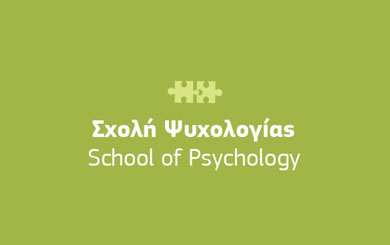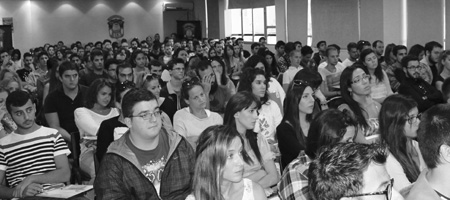

School of Psychology
- MSc Psychology of Addictions and Behavioural Change
- Professional Doctorate Counselling Psychology
- MSc Occupational Psychology
- MSc Forensic Psychology (with Psychotherapy)
- MSc Counselling and Psychology in Educational Settings
- MSc Applied Psychology: Health Psychology and Counselling
- MSc Applied Psychology: Clinical Psychology and Counselling
- MSc Integrative Counselling & Psychotherapy




MSc Psychology of Addictions and Behavioural Change
-
45+ Years of Experience in Psychology Studies
-
Accredited postgraduate degree from a TOP 25 UK University in Psychology (Guardian Guide, 2024)
-
Combines Psychology of Addictions with psychotherapeutic techniques & intervention plans
-
Supervised clinical placement in various settings
Course Information
Mediterranean College has over 45 Years of Experience in the delivery of higher education courses in Psychology and Counselling. The MSc Psychology of Addictions and Behavioural Change is offered in partnership with the University of Derby (TOP 25 for Psychology, Guardian University Guide 2024) and prepares students to work effectively as psychologists specializing in addictions. Graduates can work with clinical populations and other professionals, having acquired core theoretical and empirical knowledge, counseling skills and competence in psychotherapeutic techniques and intervention plans.
What you will learn
The programme covers theory and empirical evidence on different types of addiction with an emphasis on behaviour change. Emphasis is placed on the neurobiological mechanisms of addiction and their implications for treatment, as well as models of behavior change, psychotherapeutic approaches and techniques at both individual and group levels, and pharmacological treatments and interventions. The programme also covers in-depth knowledge of diagnostic criteria, clinical assessment, and the comorbidity of addictions with specific disorders. In addition, it includes training in methodology and analysis techniques used in quantitative and qualitative research.
The content has been developed based on the local context, while at the same time the European and global frameworks & legislations are introduced. It is a programme that focuses on the practice of the profession, using real-life examples, case studies and practical training, while also incorporating a personal development plan and cultivating the concept of lifelong professional development & learning. Students need to accumulate a minimum of 100 placement hours and 20 supervision hours.
Why choose this course
- The degree is awarded by the University of Derby, a TOP25 UK University in Psychology, according to the Guardian University Guide, 2024.
- A unique programme, focusing on addictions, treatments and interventions.
- Concentrates on psychotherapeutic approaches and techniques at both individual and group level.
- Includes a 100-hour clinical placement with in-house supervision.
- Focuses on diagnostic criteria, clinical assessment, and intervention.
- Utilises a fully equipped observation suite (with a one-way mirror and audio-visual recording), appropriate for focus groups, interviews, role-plays and observational studies.
- It is fully applied and research oriented, giving you the opportunity to continue your studies towards a PhD or a DPsych.
- You will be taught by experienced academics and active professionals, who are accredited lecturers of the University of Derby.
- The School of Psychology at Mediterranean College is an organisational member of the British Association for Counseling & Psychotherapists (BACP).
We use a rolling admissions policy, so we accept applications throughout the calendar year until all available places are filled. Since this is a course with a cap in student numbers, due to limitations in available placements, we urge you to submit your application in time.
Contact us today and find out more about this course and the available bursaries and funding opportunities. Our admissions advisors will provide you with all necessary information and will guide you through the application and enrolment process.
Entry requirements
Our MSc Psychology of Addictions and Behavioural Change is ideal for you, if you hold an undergraduate degree in Psychology or a Social Sciences degree, with a significant psychology content.
The minimum English language requirement is equivalent to IELTS 6.5 (C1). If you do not possess an official English language certificate, you can sit the College’s internal placement test.
Moreover, you’ll be asked to submit a resume, as well as a recommendation letter from employers and tutors, and you’ll be called for an academic interview with the programme leader.
The programme consists of six (6) 20-credit modules, as well as the postgraduate dissertation (60 credits).
We use multiple learning and teaching methods, including lectures, seminars, discussion sessions, case-based teaching, interactive workshops and lab sessions.
Throughout the programme, you will be expected to take an active role and will be encouraged to contribute to the investigation of concepts in written and oral format. This will enable you to further develop your critical and academic thinking, academic writing and argument building, personal development, reflection, communication and investigative skills.
In all modules, you will be directed to supplementary information sources, to complement the taught material and further encourage independent learning.
Module descriptions
The module will cover culturally responsive policies, assessments, and treatment practices. Students will also learn how sociocultural views around different types of addiction relate to patterns of use/conduct, impacts on individuals struggling with different addictions and the impact on their families. The module focuses on understanding the nature of addiction and its impact on individuals, families, and communities. Considering historical and cultural perspectives on addiction. Along with the psychological theories of addiction across the lifespan, behavioural change, and their implications for treatment and prevention. The module will further cover the role of brain chemistry and genetics in addiction, the neurobiological mechanisms of addiction and their implications for treatment, also considering the role of individual differences and personality in addictions. The role of caregivers and micro and macro social support will also be discussed. The module will cover evidence-based approaches to addiction treatment, including behavioural change models, cognitive-behavioural therapy, motivational interviewing, and relapse prevention, along with supplementary techniques (e.g. BCTs, ACT, mindfulness). The module will further provide students with an understanding of the psychosocial and pharmacological treatments and interventions used to combat addictions. The module will cover the classes of psychotherapeutic and addictive drugs, aiming at a deep understanding of drug classification, mechanism of action, pharmacokinetics, pharmacodynamics and the current medications. This module will cover how to clinically assess symptoms, treatment needs and outcomes in individuals with various addictions. In this module, students will also learn about the common co-occurring psychiatric and legal issues relating to substance use disorders. This module also addresses the DSM 5 major disorders that co-occur with substance misuse, mainly mood, personality, anxiety and psychotic disorders and how effective different treatments are. Screening and assessment tools for addiction, diagnostic criteria for substance use disorders, and formulation and design of treatment plans based on assessment results will also be covered. The module will explore different quantitative and qualitative data collection and data analysis methods, along with their applications and their strengths and weaknesses. Students will also develop their practical and interview skills, by using SPSS for quantitative research for the former and by taking part in interview simulations for the latter, as well as appreciating ethical issues and dilemmas in research. The module will cover the use of counselling techniques in addictions, from initiation to relapse. The module will also cover from mainstream (e.g. Psychodynamic) to alternative (e.g. Dramatherapy) psychotherapeutic interventions along with both one-to-one and group therapy provision/ support groups, including family dynamics. Furthermore, the module will also go in-depth about biopsychosocial issues to gain a wider understanding of barriers to counselling and how to integrate diversity into treatment. Ethical and legal issues will also be covered and discussed. The module is designed to enable students to apply their knowledge and skills to the development and implementation of a research project. The dissertation provides students with the opportunity to test their learning, display their subject knowledge and methodological skills, and explore in detail a topic that interests them. Studying Addictions: theory, policy and culture
Biopsychosocial Issues in Addictions
Evidence-based Interventions and Behavioural Change
Assessment, Diagnosis, Comorbidity and Intervention Planning
Quantitative and Qualitative Research Methods
Addictions Counselling
Dissertation
Testimonials
At Mediterranean College I studied the BSc (Hons) Applied Psychology course, which offered me the necessary skills to be accepted for postgraduate studies in London (MSc Clinical Applications of Psychology – Kingston University London) and become a member of the British Psychological Society – MBPsS). Starting from scratch, the College and its outstanding academic tutors provided me the theoretical and practical background to be employed and continue to work until...
Spyros Vlaseros, BSc (Hons) Applied Psychology
I started my studies at Mediterranean College in 2008 when I followed the BSc in Psychology and Counselling course through the University of Teesside. Mediterranean College provided me with the foundation upon which I based my career. After completing the BSc, I moved to England, obtained two Master’s degrees and started working as a research assistant at the University of Teesside. I am completing now my final PhD year with...
Theodora Machaira, BSc (Hons) Psychological Sciences & Counselling
Completing the academic programme BSc in Counselling & Psychology at the Mediterranean College, I managed to register with the British Psychological Society as a Graduate Member, I have been working as an independent mental health professional with my private practice until today, Ι linked with other professionals in the Psychology and Mental Health field, I wrote two psychology books which have been officially published, and also, having an accredited (by...
Evangelos Kousiadis, BSc (Hons) Psychological Sciences & Counselling




